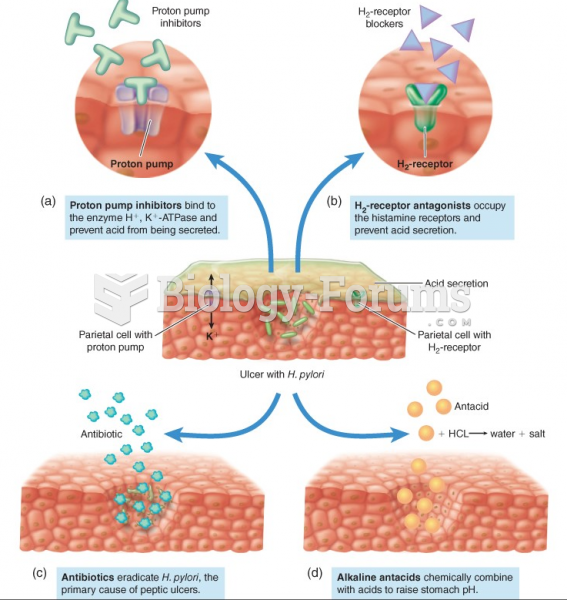Answer to Question 1
2
Rationale 1:Pain is the feeling associated with inflammation.
Rationale 2:Inflammation occurs in response to many different stimuli, including physical injury, exposure to toxic chemicals, extreme heat, invading microorganisms, and death of cells. The central purpose of inflammation is to contain the injury or destroy the microorganism. By removing cellular debris and dead cells, repair of the injured area can move at a faster pace. Inflammation proceeds in the same manner, regardless of the cause that triggered it. Signs of inflammation include swelling, pain, warmth, and redness of the affected area.
Rationale 3: Allergy is a response by the body with exposure to an allergen.
Rationale 4: Histamine response is a chemical mediator in response to inflammation.
Global Rationale: Inflammation occurs in response to many different stimuli, including physical injury, exposure to toxic chemicals, extreme heat, invading microorganisms, and death of cells. The central purpose of inflammation is to contain the injury or destroy the microorganism. By removing cellular debris and dead cells, repair of the injured area can move at a faster pace. Inflammation proceeds in the same manner, regardless of the cause that triggered it. Signs of inflammation include swelling, pain, warmth, and redness of the affected area.
Answer to Question 2
1
Rationale 1: Acute inflammation has an immediate onset and lasts 1 to 2 weeks.
Rationale 2: During acute inflammation, 8 to 10 days are normally needed for the symptoms to resolve and for repair to begin. If the body cannot destroy or neutralize the damaging agent, inflammation may continue for long periods and become chronic.
Rationale 3: Acute inflammation has an immediate onset and lasts 1 to 2 weeks.
Rationale 4: Acute inflammation has an immediate onset and lasts 1 to 2 weeks.
Global Rationale: Acute inflammation has an immediate onset and lasts 1 to 2 weeks. During acute inflammation, 8 to 10 days are normally needed for the symptoms to resolve and for repair to begin. If the body cannot destroy or neutralize the damaging agent, inflammation may continue for long periods and become chronic.







